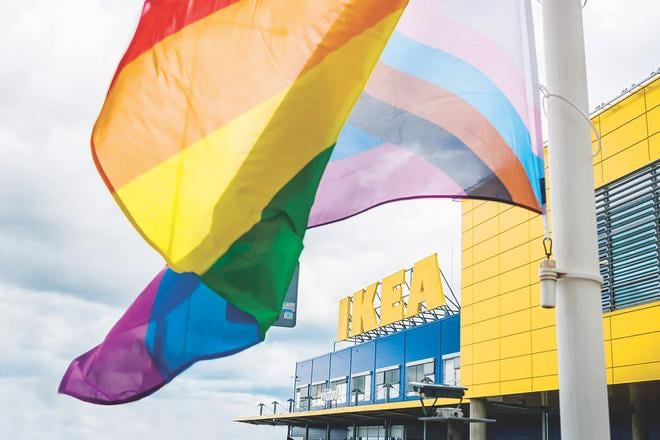The village of Ulič, situated in the Poloniny National Park in far-eastern Slovakia, close to the Slovak-Ukrainian border, struggles with a lack of job opportunities. Most work is in the surrounding forests; it is physically demanding, traditionally male-dominated labour.
To help women in the area, a company producing homemade pirohy and syrups was established in 2010. Women now make up as much as 80 percent of its workforce. Gradually, a new goal was added: to begin employing Roma women.
More information about the Slovak labour market
Please see our Career Guide.
“Ulič is a small village. Since we know the locals very well, we decided to approach the local community of Roma women,” said Juraj Kovaľ of the Vlčie Sirupy and Uličské Pirohy companies. They managed to fill in these positions quickly and now have more applicants than vacancies, he added.
Ten Roma women currently work for the firm, making up about one-third of its employees. The plan is to gradually increase this share to 40 percent.
All these women come from Ulič and appreciate not having to commute. The companies built their project on trust and treat their Roma employees equally, without prejudice, Kovaľ noted.
“They reward us with their honest and responsible work and attitude,” he added.
The project was shortlisted - and ultimately won - in the Inclusive Employment category of the Via Bona awards, which recognise inspiring examples of responsible business and corporate philanthropy. The nominees introduced projects and activities in 2024 aimed at creating the best possible conditions for employee groups that often face discrimination in the labour market.
Corporate cafés provide jobs to people with disabilities
A concept for a corporate café staffed by people with disabilities working in various roles was introduced by another finalist, the social enterprise MannaFactory. Disabled employees not only serve customers but also prepare all the food. Working conditions are adapted to individual needs.
“This concept represents a ground-breaking way to efficiently connect social inclusion with the business environment and, at the same time, challenge prejudice towards people with disabilities,” said Szilárd Cséfalvay, the company’s authorised representative.
He took over the family business from his mother in 2010, and transformed it into MannaFactory. It combines gastronomy, innovation and responsible business, focusing primarily on office catering for corporate clients and providing catering services at various corporate events. The company also has its own pastry production, and implements various zero-waste principles.
The cafés were launched in response to the lack of inclusive job opportunities for people with disabilities, who often face barriers in the labour market.
“Our goal was to integrate them into a real work environment where they can grow and feel like an equal part of society,” Cséfalvay explained.
The corporate cafés currently operate at the premises of IBM and SwissRe in Bratislava, with plans to expand the network in the near future.
A safe environment for all
In line with its corporate values and increasing workforce diversity, IKEA Bratislava launched a series of initiatives focused on diversity, equality and inclusion. These include training for the entire management team and support for the creation of internal diversity groups that propose concrete measures to meet set goals.
They also organise volunteer days for employees, collaborate with non-governmental organisations focused on inclusion, and develop projects specifically aimed at people with disabilities, the LGBT+ community, and refugees.
At IKEA Bratislava, inclusion is not treated as a temporary campaign but rather as an ongoing goal embedded in all activities, explained sustainability manager Veronika Grand Bruncková.
“Our ambition is to become the first choice for people seeking an inclusive work environment,” she added.
Currently, the company employs 31 people with disabilities and 22 people with temporary protection status. Additionally, 335 of its staff are women, while women make up more than 50 percent of its management.
The benefits of these projects are measured through its internal iShare survey. The latest results indicate positive feedback. Employees also report that more diverse teams tend to perform better, Grand Bruncková said. They have also observed increased interest from job applicants and an enhanced brand reputation.
“We hope, and are already seeing in practice, how it enriches our work environment,” Grand Bruncková noted. “This initiative stems not only from challenges in the labour market, but also from our values, which place people at the heart of everything we do.”


